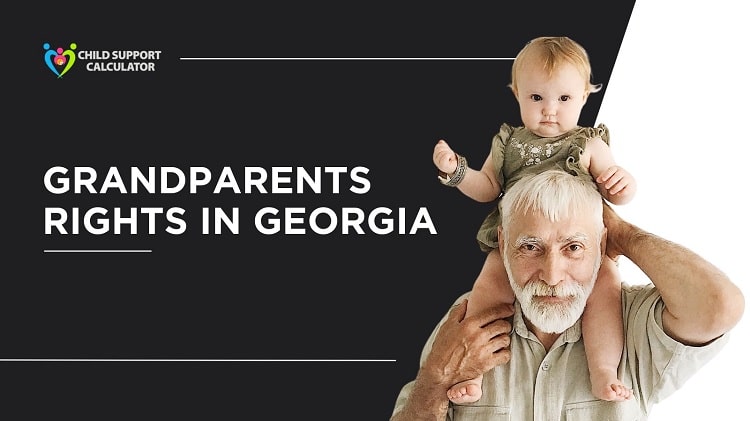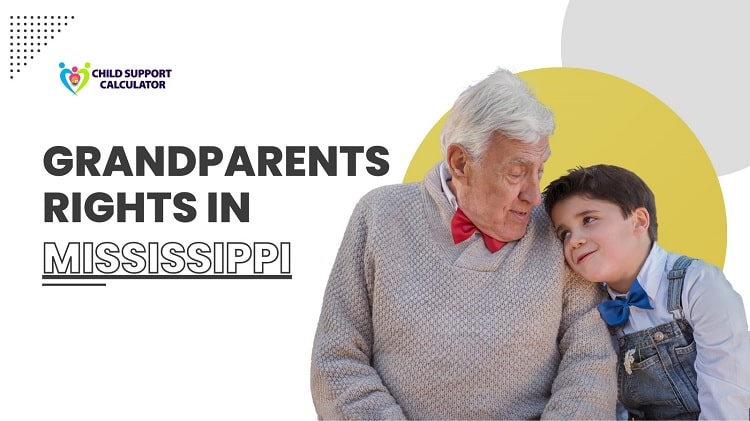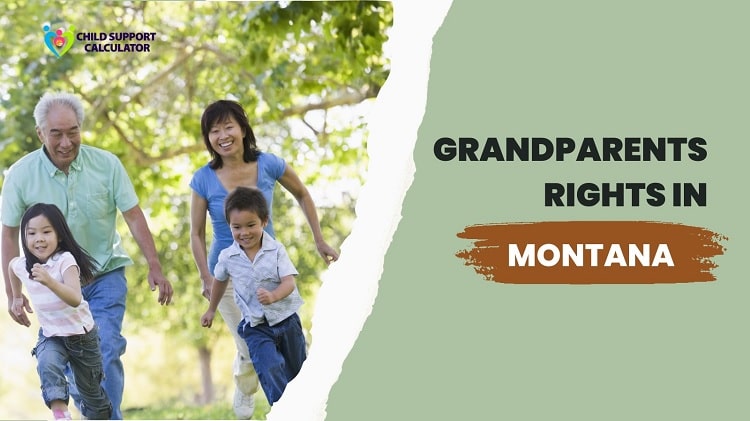Grandparents Rights In Georgia
Most people automatically associate the words “divorce” or “custody” with the parents and the impact those words will have on the children. Few people consider how a divorce may affect grandparents. Grandparents frequently play an essential part in the lives of their grandchildren, functioning as carers, offering relief in times of need, and even serving as parental figures in some cases.

Grandparents may play just as important a part in raising their grandkids as their parents do in many situations. Grandparents may be unsure about their rights to visit their grandchildren if a parent dies, abandons the children, or the parents divorce. This article will explain grandparents’ rights in Georgia.
Grandparent Visitation Rights In GA
A grandparent is defined by GA law as a parent of a minor child’s parent, regardless of whether the child’s parent has died or whether the child’s parent’s parental rights have been terminated by a court.
The grandparents cannot submit a petition for visiting rights if the parents of a minor child are not divorced and the child lives with both parents. Only when the child’s parents are divorced, or the court considers the child’s health or welfare would be jeopardized without grandparent visits can grandparents pursue visitation rights, as long as the visitation is in the child’s best interests.
When any of the following criteria are present, judges will conclude that a child may be injured by not getting grandparents’ rights in Georgia.
- The youngster stayed with the grandparents for at least six months.
- For a year or more, the grandparent provided financial support to the youngster.
- The grandma gave regular childcare or paid visits to the child.
- Any other conditions indicating that the kid will suffer mental or physical harm as a result of the child’s absence of grandparent visitation
Grandparents are only allowed to visit their grandchildren once every two years. They also can’t ask for visitation during the year if the child is the subject of another custody dispute. For example, suppose the child’s parents split during a given year and decide on custody. In that case, the grandparents cannot request visitation during that year unless they file a petition to intervene in the existing custody case.
Any other person with custody rights, such as the parents or another legal guardian, can seek the court to amend the visits once a grandparent has been given visitation rights. No one can request a change in grandparent visiting more than twice every two years.
Unless a blood relative has adopted the minor child, grandparents’ visitation rights with the child end if the child is adopted. When a kid is adopted by a stepparent, the parents of the parent whose parental rights have been terminated lose their right to visitation as well. For example, suppose a mother remarries, and her new husband adopts her children while the biological father’s parental rights are terminated. In that case, the paternal grandparents will no longer be able to request visitation.
Grandparent Visitation Law In GA
When deciding whether or not to allow grandparent visits, GAjudges give considerable consideration to the parents’ wishes. Nonetheless, the parent’s preference will not be the only deciding element; courts will consider whether the child would be injured if the grandparents were not allowed to visit.
Grandparent visits will not be allowed if it interferes with the child’s education. In addition, if approved, grandparent visits will be a minimum of 24 hours per month, with the possibility of much more depending on the circumstances.
If one parent dies, becomes incapacitated, or is incarcerated, a judge may allow the kid’s parent to visit the child in place of the absent parent. Courts must still decide if granting visitation is in the child’s best interests. When parents and grandparents disagree on visitation, a judge might require all parties to attend mediation to try to reach a compromise.
Courts may appoint a guardian ad litem to represent the child’s interests in court while deciding whether grandparent visitation is appropriate. The guardian may interview both parents, visit the child’s teachers, coaches, doctors, and other people who interact with the child and take any other steps necessary to figure out what visitation schedule is best for the child.
Even if a court denies grandparent visitation, the court might order the parents to tell the grandparents of their child’s enrollment in school and involvement in sports, music or dance performances, graduations, or other public events.
Grandparent Visitation Rights In Georgia
If the kid’s living parents have voluntarily abandoned parental rights to the child in writing, a grandparent may legally adopt the child. The parent’s written surrender of parental rights must be signed by a notary public.
If the child is over the age of 14, he or she must also give a written agreement to the adoption and confirm it in front of a judge. Any other grandparents can ask the court for grandparents’ rights in Georgia, if one grandparent (or a group of grandparents) adopts a child.
If both biological parents are deceased, the grandparents may request custody of the grandkids, or if the child is adopted by another person, the grandparents may be granted visitation.
do grandparents have rights in Georgia
Yes. Grandparents in Georgia have the legal right to petition the court for visitation with their grandchildren. Grandparents have two options for exercising their rights.
Grandparents can first file their own court case for visitation with their grandchildren. There are a few exceptions to this general rule: they can only file an original visitation action once every two years. They can’t seek visitation with a grandchild who lives with both parents if the parents haven’t divorced.
Grandparents can also “intervene” (join) as a party in an ongoing legal action, such as:
- Any action involving their minor’s custody or visitation rights.
- A grandchild, as well as a divorce case involving the child’s parents
- An action to have either parent’s parental rights terminated.
- A petition for the child’s adoption by a stepparent or blood relative.
Can grandparents sue for visitation rights in Georgia?
Grandparents may sue for fair visitation with their grandkids in certain circumstances. Grandparents might seek visitation rights for their grandkids by filing a new suit. However, if the parents of minor children are not divorced, and the minor children live with both parents, a fresh action for visitation rights is not permitted.
Grandparents may be allowed visiting rights if they can establish that their grandchildren’s health or welfare would be jeopardized if visitation was not granted. Such visitation would be in the best interests of the grandchildren.
Grandparents may sue for fair visitation with their grandkids in certain circumstances. Grandparents might seek visitation rights for their grandkids by filing a new suit. However, if the parents of minor children are not divorced, and the minor children live with both parents, a fresh action for visitation rights is not permitted.
Grandparents may be allowed visiting rights if they can establish that their grandchildren’s health or welfare would be jeopardized if visitation was not granted. Such visitation would be in the best interests of the grandchildren.
Prior to the action, the court may find that harm to the grandchildren is reasonably likely:
- The grandchildren stayed with the grandparents for at least 6 months, and the grandparents supported them financially for at least a year.
- The grandparents had developed a habit of regular visitation or child care.
- Any additional circumstances exist that indicate that denying visitation would be reasonably likely to cause mental or physical harm.
FAQs
Grandparents do not have automatic legal rights to visitation or custody of their grandchildren unless a court order grants them such rights.
If there is no court order in place, a parent may deny a grandparent’s request for visitation.
The following are the general steps to obtaining grandparents’ rights in Georgia:
Make the necessary petitions (note that an original action may not be allowed in certain circumstances and that the grandparent may need to intervene in an existing action).
Serve the other party after filing the petition electronically.
If there are no court orders compelling grandparent visits, a parent in Georgia has the right to refuse it.
If a grandmother has a court order requiring visitation and the parent refuses, the grandparent may be entitled to enforce the court order through contempt.







